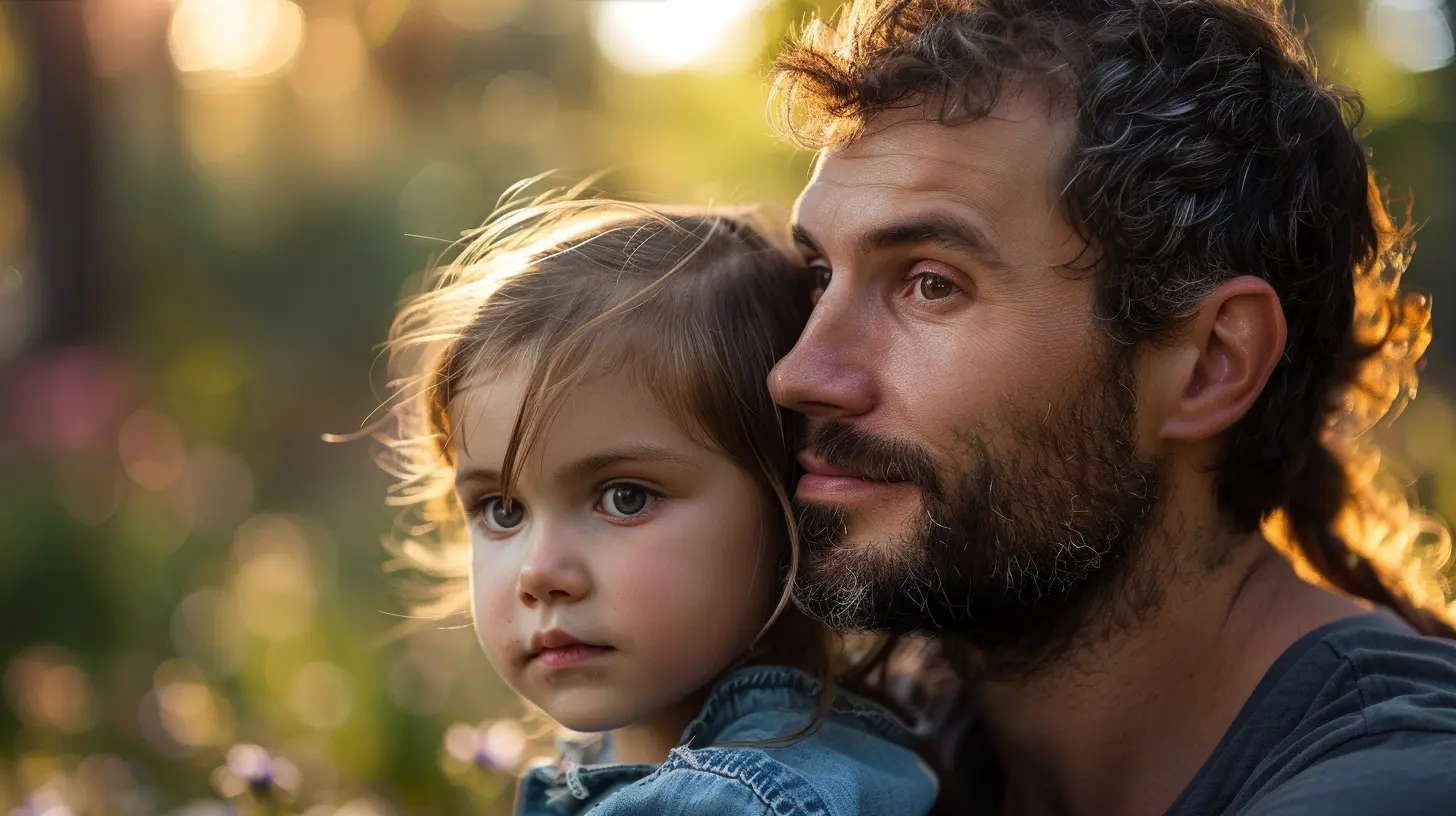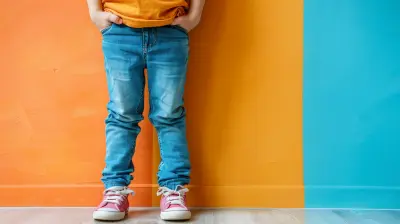Helping Kids Understand It’s Not Their Fault: Addressing Divorce Blame
7 August 2025
Divorce is tough—there’s no sugarcoating it. It shakes up everything kids once knew as their reality. And in the midst of it all, one heartbreaking thought often creeps into their minds: Is this my fault?
As adults, we know divorce is a complicated, multi-layered situation. But to a child, the world is much simpler; they see things as cause and effect. They wonder if something they did—or didn’t do—made Mom and Dad drift apart.
The truth? Kids are never to blame for divorce. Yet, unless we specifically tell them this, they might carry guilt like an invisible weight on their tiny shoulders.
So, how do we help them understand that the separation has nothing to do with them? How do we erase that little voice whispering self-doubt into their minds? Stick with me—we’re diving into everything you need to know. 
Why Do Kids Blame Themselves for Divorce?
Kids are natural problem-solvers. But when faced with something as overwhelming as divorce, their young brains scramble for an explanation. Since they don’t have all the facts (and let’s be honest, adult relationships are complicated), they often turn to the simplest answer: It must be because of something I did.Maybe they remember that one time they misbehaved at dinner, or the time they refused to clean their room. They connect dots that don’t exist, assuming their actions caused the split.
Other times, it's not even about specific behavior. It’s about emotions—feeling unwanted, unimportant, or in the way.
Without reassurance, these thoughts don’t just fade. They build up, leading to anxiety, guilt, and sadness. 
Signs Your Child Might Be Blaming Themselves
Not all kids express guilt openly. Some might confess their worries, while others might bottle them up. Here’s what to look for:- Sudden changes in behavior – Acting out or becoming unusually quiet
- Excessive people-pleasing – Trying to "fix" things or make parents happy
- Withdrawing from one or both parents – Avoiding time with a parent out of guilt
- Asking direct or indirect questions – Saying things like "Would you and Mom still be together if I was better?"
- Increased sadness or anxiety – Trouble sleeping, changes in appetite, or mood swings
If any of this sounds familiar, don’t panic. The good news? Kids are incredibly resilient. With the right support, they can process these feelings and move forward without the heavy burden of guilt. 
How to Reassure Your Child It's Not Their Fault
1. Say It—Again and Again
Kids need to hear the words:"This is not your fault. Nothing you did caused this to happen."
Repeat it often. Even if they nod and say "I know," they might not fully believe it yet. Keep reinforcing that message until it sticks.
2. Be Honest (But Age-Appropriate)
Children don’t need all the gritty details, but they do need clarity. A simple explanation like:"Mom and Dad have decided to live in different houses because we weren’t happy together. This is a decision between adults, and it has nothing to do with anything you did or didn’t do."
For younger kids, using a story-like analogy might help:
"Sometimes, best friends decide they’re better off playing in different playgrounds, but they still care about each other. That’s kind of what’s happening with us."
3. Encourage Open Conversations
Make sure your child knows it’s okay to ask questions. Some kids might bottle up their emotions, too scared to speak up. Let them know:"You can always talk to me about how you're feeling. No question is too big or too small."
And when they do open up? Listen. Don’t rush to correct them—just let them express their thoughts before responding.
4. Keep Routines Stable
When everything else feels up in the air, consistency is comforting. Sticking to familiar schedules—bedtime routines, weekend activities, family traditions—helps kids feel secure.The more predictable their life remains, the less likely they are to feel like they’ve lost control over everything.
5. Be Mindful of How You Talk About Your Ex
Even if the divorce wasn’t amicable, try to avoid badmouthing your ex in front of your child.Kids absorb more than we realize. If they hear one parent blaming the other, they might feel stuck in the middle—or worse, assume they need to pick sides.
Instead of saying:
"Your dad never helps out—he just made things impossible."
Try something more neutral:
"Mom and Dad see things differently, but we both love you very much."
6. Offer Professional Support if Needed
If your child seems overwhelmed with guilt or sadness, therapy can be a game-changer. Sometimes, talking to a neutral person helps kids process their emotions more openly than they might with a parent.Play therapy, in particular, can be really effective for younger children who struggle to put their feelings into words. 
The Power of Love & Reassurance
At the end of the day, what kids need most during a divorce is to feel secure, loved, and heard. They need reminders that their parents' love for them is unchanging—even if everything else is shifting.The more you reassure them, the lighter their burden will become. And eventually, they’ll believe the truth:
It was never their fault. It never will be.
Final Thoughts
Divorce can shake a child's world, but it doesn't have to define their future. By approaching the topic with empathy, patience, and clear communication, you can help your little one navigate this tough chapter without carrying unnecessary guilt.You’ve got this. And most importantly? So do they.
all images in this post were generated using AI tools
Category:
Divorce And KidsAuthor:

Tara Henson
Discussion
rate this article
1 comments
Zeal McLanahan
This article effectively addresses a crucial aspect of divorce: helping children navigate feelings of blame. By emphasizing open communication and validating their emotions, parents can foster resilience and understanding. Practical strategies, such as reassurance and age-appropriate discussions, empower children to separate their feelings from the circumstances, promoting emotional health.
August 28, 2025 at 2:41 AM

Tara Henson
Thank you for your insightful comment! I'm glad you found the emphasis on open communication and emotional validation helpful in supporting children during divorce.


